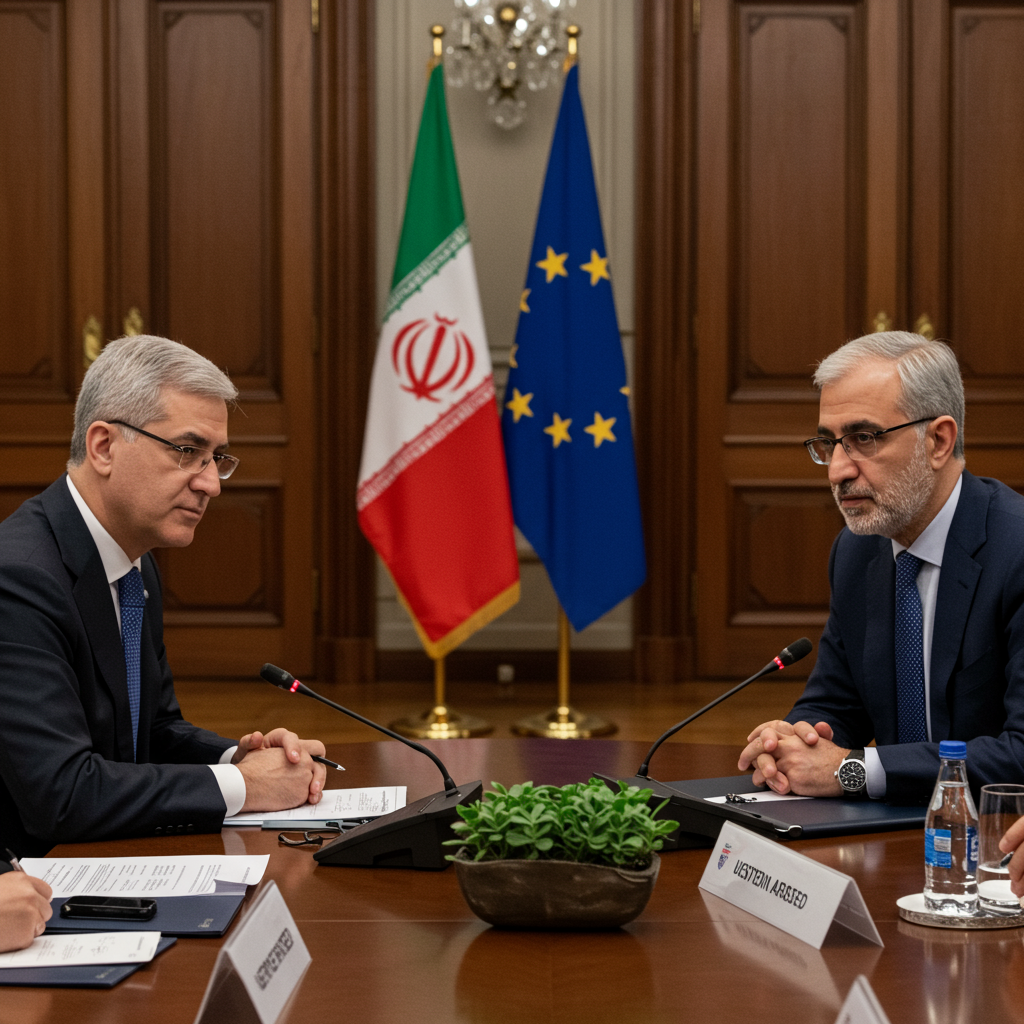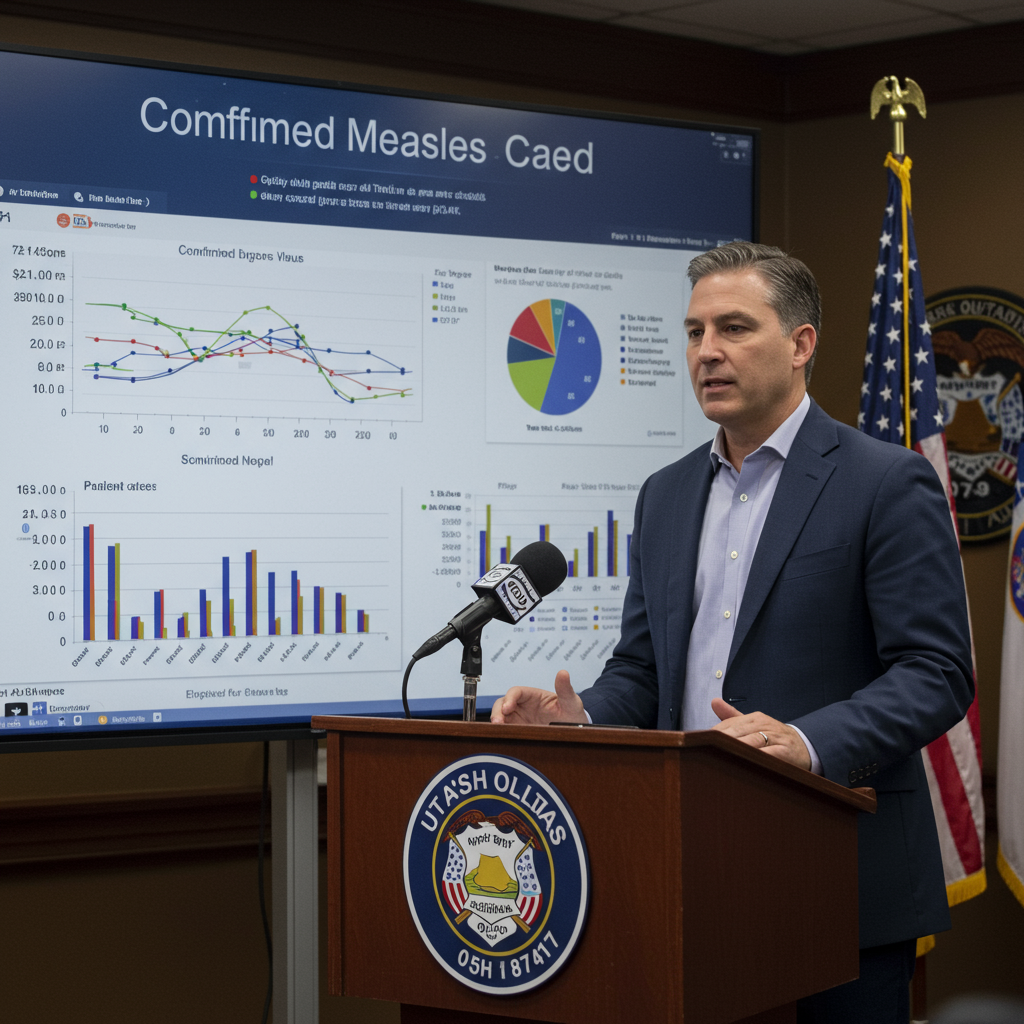Europe’s Urgent Push for Diplomacy as Israel-Iran Conflict Escalates
GENEVA — Against a backdrop of escalating conflict and President Donald Trump’s pending decision on potential U.S. military intervention, key European foreign ministers are holding urgent talks with their Iranian counterpart. The high-stakes meeting in Geneva on Friday is a critical bid to find a diplomatic “off-ramp” from the spiraling violence between Israel and Iran.
European leaders, including representatives from France, Britain, Germany, and the European Union, gathered to confer ahead of meeting Iranian Foreign Minister Abbas Araghchi. These nations were central to the 2015 Iran nuclear agreement and are seeking to reassert a mediation role, having been largely sidelined under the current U.S. administration.
The Looming Deadline: Trump’s Two-Week Window
The urgency of the European diplomatic push is underscored by President Trump’s recent announcement that he would decide within two weeks whether the United States would join the Israeli military campaign against Iran. This statement followed days of apparent wavering, initially denying U.S. involvement in Israel’s strikes before suggesting intervention was possible.
While some observers speculate that Trump’s delay could be a strategic maneuver, perhaps a “ruse” to catch Iran off guard or allow for military preparations, White House officials indicated they are watching the Geneva talks closely for signs of Iranian openness to a deal. British Foreign Secretary David Lammy, following a trip to Washington, stated late Thursday that this two-week window represents an opportunity for a diplomatic solution.
European Objectives: De-escalation and Nuclear Guarantees
Deeply wary of being drawn into a wider regional war, Europe’s traditional U.S. partners are intensely working diplomatic channels to contain the rhetoric and carve out a path to peace. This latest push is seen as an 11th-hour scramble with ambitious goals.
European officials aim to extract greater concessions from Iran, believing its position may be weakened by continuous Israeli strikes. A primary objective is to persuade Tehran to provide credible guarantees that its nuclear activities are strictly for civilian purposes. While Iran previously adhered to limitations under the 2015 nuclear deal (which the U.S. abandoned), the Europeans, aligning with Washington, are expected to press for a commitment to “zero enrichment” of uranium. This is a significant shift from previous talks that considered allowing limited enrichment for civilian energy.
The Europeans also hope the talks can serve as an off-ramp from Trump’s threats and suggestions of regime change. They concede it’s a tall order, uncertain whether Trump will heed their calls for restraint or if Iran, insisting it won’t negotiate under bombardment, will accept any ultimatum, particularly a “take it or leave it deal” potentially linked to “regime survival.”
Iran’s Position Amidst Intensifying Conflict
Iran has maintained a tough stance, particularly regarding negotiations with the United States, which its deputy foreign minister described as a “partner in this crime.” Iranian officials have stated clearly that there is “no room for dialogue until the aggression stops,” though they are willing to talk with other nations seeking de-escalation.
The conflict on the ground is severe. Both nations have exchanged hundreds of missiles, with reports detailing Iranian attacks hitting civilian areas in Israel, including a hospital, and Israeli strikes targeting Iranian nuclear infrastructure, including the Arak reactor and the Natanz enrichment facility. Casualty figures vary significantly, with human rights groups reporting hundreds of Iranian fatalities, far exceeding the official count from Israeli officials. The intensity highlights the urgent need for de-escalation.
Concerns also exist about the potential for the conflict to broaden regionally, with groups like Hezbollah in Lebanon monitored closely. The economic cost is high, straining resources and increasing pressure on all sides.
Challenges and the Path Forward
Despite the European efforts and the small window created by Trump’s decision delay, significant challenges remain. Beyond the uncertainty of Trump’s direction and Iran’s resistance to negotiation under fire, there are also differing views within Europe itself on how to approach the conflict and Iran’s nuclear program.
Nevertheless, the Geneva meeting represents a crucial diplomatic lifeline. Coordinated with Washington, the talks are a serious attempt to gauge whether the pressure from nightly Israeli attacks has shifted Iran’s stance and to find a diplomatic path forward before the window closes and the risk of wider military conflict dramatically increases. The outcome could determine whether diplomacy can still prevail or if the region is headed towards a potentially devastating escalation involving the United States.




